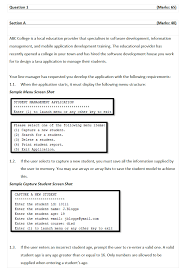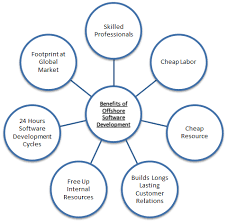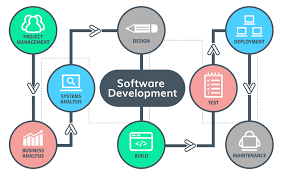The Rise of AI Robots: Transforming the Future
The Rise of AI Robots: Transforming the Future
Artificial Intelligence (AI) robots are no longer a concept confined to science fiction. They are increasingly becoming an integral part of our daily lives and industries, transforming how we work, play, and interact with the world around us.
What Are AI Robots?
AI robots are machines designed to perform tasks autonomously or semi-autonomously using artificial intelligence technologies. These technologies enable robots to perceive their environment, process data, make decisions, and execute actions with minimal human intervention.
Applications of AI Robots
The applications of AI robots span across various sectors:
- Manufacturing: AI robots streamline production lines by performing repetitive tasks with precision and speed.
- Healthcare: In healthcare, they assist in surgeries, patient care, and diagnostics.
- Agriculture: Robots equipped with AI help in planting, harvesting, and monitoring crops.
- Logistics: Autonomous drones and delivery robots optimize supply chain management.
- Customer Service: Chatbots and humanoid robots enhance customer interaction in retail and hospitality sectors.
The Benefits of AI Robots
The integration of AI in robotics offers numerous benefits:
- Efficiency: AI robots can operate 24/7 without fatigue, significantly increasing productivity.
- Precision: They perform tasks with high accuracy, reducing errors and waste.
- Safety: In hazardous environments such as mining or chemical plants, they minimize human exposure to risks.
- Cognitive Capabilities: Advanced algorithms enable them to learn from experience and improve over time.
The Challenges Ahead
The rise of AI robots also presents challenges that need addressing:
- Ethical Concerns: The potential for job displacement raises questions about economic impact and workforce adaptation.
- Privacy Issues: The use of surveillance robots could infringe on personal privacy rights.
- Lack of Regulation: As technology evolves rapidly, regulatory frameworks struggle to keep pace.
The Future of AI Robots
The future holds exciting possibilities for AI robotics. As technology advances further, we can expect more sophisticated interactions between humans and machines. Innovations such as emotion-sensing capabilities could lead to more empathetic robot companions. Moreover, collaboration between humans and robots may redefine workplace dynamics across industries.
The journey towards a future enriched by AI robotics is both thrilling and complex. It requires careful consideration of ethical implications while embracing the potential for positive change. As society navigates this transformative era, ongoing dialogue among technologists, policymakers, businesses—and indeed everyone—will be crucial in shaping a future where technology enhances human life responsibly.
8 Advantages of AI Robots: Boosting Productivity, Safety, and Efficiency
- Increased productivity
- Precision and accuracy
- Cost-effectiveness
- Improved safety
- 24/7 operation
- Adaptability
- Enhanced decision-making
- Task automation
Six Key Concerns About AI Robots: Job Displacement, Privacy, and More
- Job Displacement
- Privacy Concerns
- Dependency on Technology
- Security Risks
- Ethical Dilemmas
- Cost of Implementation
Increased productivity
AI robots significantly boost productivity by operating continuously without the need for breaks, unlike their human counterparts. This constant operation means that tasks can be completed faster and more efficiently, leading to increased output in various industries. For example, in manufacturing, AI robots can work around the clock on assembly lines, maintaining a consistent pace that enhances overall production rates. This ability to function tirelessly not only maximizes efficiency but also allows human workers to focus on more complex and creative tasks that require critical thinking and problem-solving skills. As a result, businesses can achieve higher levels of productivity and innovation by integrating AI robots into their operations.
Precision and accuracy
AI robots are renowned for their precision and accuracy, performing tasks with a level of consistency that significantly reduces the likelihood of errors. Unlike humans, who may experience fatigue or distraction, AI robots maintain a steady focus on their tasks, ensuring uniform output every time. This capability is particularly beneficial in industries where even minor errors can lead to significant consequences, such as in manufacturing or healthcare. By minimizing mistakes, AI robots not only enhance the quality of products and services but also contribute to cost savings by reducing waste and the need for rework. Their ability to operate with such exactness positions them as invaluable assets in any environment where precision is paramount.
Cost-effectiveness
AI robots offer significant cost-effectiveness by streamlining processes and minimizing waste, which can lead to substantial savings over time. By automating repetitive and labor-intensive tasks, these robots reduce the need for a large workforce, thereby cutting labor costs. Furthermore, their precision and accuracy in performing tasks minimize errors and material waste, leading to more efficient use of resources. This not only lowers operational costs but also enhances productivity and output quality. As AI robots continue to evolve and become more sophisticated, their ability to optimize workflows will increasingly contribute to cost savings across various industries.
Improved safety
AI robots significantly enhance safety by taking on dangerous tasks in hazardous environments, thereby protecting human workers from potential harm. In industries such as mining, construction, and chemical manufacturing, robots are deployed to perform high-risk activities like handling toxic substances, operating in extreme temperatures, or working in confined spaces. These machines can be designed to withstand conditions that would be perilous for humans, reducing the likelihood of accidents and injuries. By assuming roles that involve exposure to danger, AI robots not only improve workplace safety but also allow human workers to focus on tasks that require creativity and problem-solving skills. This shift not only safeguards human health but also contributes to increased efficiency and productivity across various sectors.
24/7 operation
AI robots offer the significant advantage of 24/7 operation, which is a game-changer for industries seeking to maximize efficiency and output. Unlike human workers, AI robots do not require breaks, sleep, or shift changes, allowing them to maintain continuous production without downtime. This capability optimizes production schedules by ensuring that manufacturing lines can run non-stop, meeting high demand and reducing lead times. In service industries, around-the-clock operation means enhanced availability and customer satisfaction, as tasks such as order processing or customer support can be handled at any time of day. This relentless operational capacity not only boosts productivity but also provides businesses with a competitive edge in today’s fast-paced market.
Adaptability
AI robots offer a remarkable advantage in adaptability due to their machine learning capabilities. By leveraging advanced algorithms, these robots can swiftly adjust to new situations, learn from experiences, and enhance their performance progressively. This ability not only enables them to handle diverse tasks effectively but also ensures continuous improvement in their functionality, making them invaluable assets across various industries where flexibility and efficiency are paramount.
Enhanced decision-making
AI robots significantly enhance decision-making capabilities by leveraging advanced AI algorithms to process and analyze vast amounts of data rapidly. This ability allows them to make informed decisions autonomously, without the need for constant human oversight. In industries such as manufacturing, healthcare, and logistics, AI robots can evaluate complex datasets to optimize operations, predict maintenance needs, or adjust strategies in real-time. This not only improves efficiency and productivity but also reduces the likelihood of human error. By continuously learning from new data inputs, AI robots can refine their decision-making processes over time, leading to smarter and more adaptive systems that can respond effectively to changing conditions or unexpected challenges.
Task automation
AI robots excel at task automation, which significantly enhances productivity and efficiency in various industries. By taking over repetitive and mundane tasks, these robots allow human workers to redirect their energy and skills toward more complex and creative endeavors. This shift not only boosts overall job satisfaction but also fosters innovation as employees have the opportunity to engage in strategic thinking, problem-solving, and the development of new ideas. As a result, businesses can experience increased competitiveness and growth while employees enjoy a more stimulating work environment that leverages their unique talents and insights.
Job Displacement
The advent of AI robots in various industries brings the challenge of job displacement, as automation increasingly replaces roles traditionally performed by human workers. This shift is particularly evident in sectors like manufacturing, logistics, and customer service, where tasks are repetitive and can be efficiently handled by machines. As businesses adopt AI technologies to enhance productivity and reduce costs, many workers face the risk of unemployment or the need to transition into new roles that require different skill sets. This change necessitates a focus on reskilling and upskilling programs to help the workforce adapt to an evolving job market. Additionally, it raises important discussions about economic inequality and the responsibility of companies and governments to support affected individuals during this transition.
Privacy Concerns
The deployment of AI robots equipped with surveillance capabilities has sparked significant privacy concerns. These robots, often used in public spaces and private enterprises for security and monitoring purposes, have the potential to collect vast amounts of data on individuals without their explicit consent. This raises questions about how personal information is stored, who has access to it, and how it might be used or misused. The pervasive nature of such surveillance can lead to a sense of constant monitoring, infringing on personal freedoms and autonomy. As AI technology continues to advance, it becomes increasingly important to establish robust privacy regulations and ethical guidelines to ensure that individuals’ rights are protected while balancing the benefits these technologies can offer.
Dependency on Technology
The dependency on AI robots poses a significant concern as it can lead to the erosion of human skills and decision-making abilities. As more tasks are delegated to intelligent machines, individuals may become less adept at performing these tasks themselves, leading to a decline in critical thinking and problem-solving capabilities. This overreliance on technology could result in a workforce that lacks essential skills, making it difficult for people to adapt if technological systems fail or if they need to operate without robotic assistance. Additionally, the diminished engagement with hands-on experiences and real-world challenges might hinder creativity and innovation, ultimately impacting personal growth and societal progress.
Security Risks
AI robots, while offering numerous benefits, also present significant security risks. Malicious actors may exploit vulnerabilities within AI systems to cause harm or disrupt operations. These vulnerabilities can be targeted to manipulate robots into performing unintended actions, potentially leading to physical damage, data breaches, or compromised safety protocols. As AI systems become more integrated into critical infrastructure and daily life, the potential for cyberattacks increases. Ensuring robust security measures and continuous monitoring is essential to protect against these threats and safeguard both individuals and organizations from potential exploitation by cybercriminals.
Ethical Dilemmas
AI robots, while capable of making autonomous decisions, often raise significant ethical dilemmas. One major concern is accountability: when an AI system makes a decision that leads to unintended consequences, determining who is responsible can be complex. Is it the developer, the user, or the AI itself? Additionally, AI systems can inadvertently perpetuate or even exacerbate biases present in their training data. These biases can lead to unfair treatment or discrimination in critical areas such as hiring, law enforcement, and access to services. As AI robots become more integrated into society, addressing these ethical challenges becomes imperative to ensure that their deployment aligns with societal values and fairness.
Cost of Implementation
The cost of implementing AI robots is a significant barrier for many organizations, particularly smaller businesses or those with limited budgets. The initial investment required to purchase and integrate AI robotic systems can be substantial, often involving not only the purchase of advanced hardware and software but also the need for infrastructure upgrades. Additionally, ongoing maintenance costs, including software updates, technical support, and potential repairs, add to the financial burden. These expenses can be prohibitive for companies that are unable to allocate sufficient resources or justify the return on investment in the short term. As a result, while AI robotics offer numerous benefits in terms of efficiency and productivity, their high cost remains a critical factor that organizations must carefully consider when evaluating their adoption.









